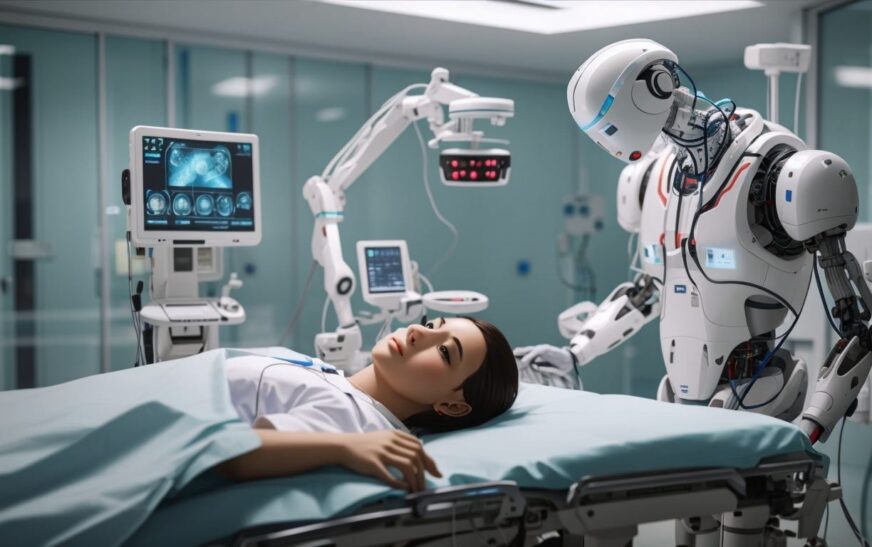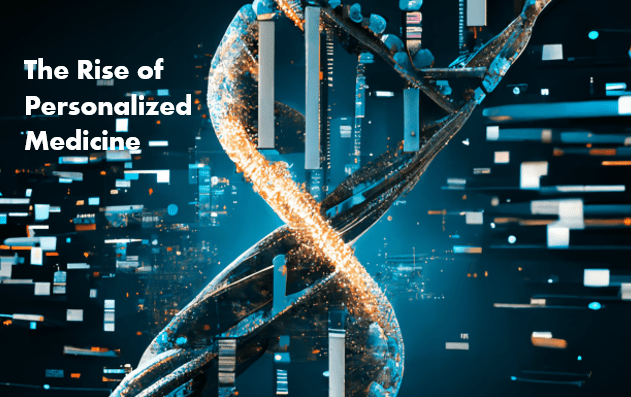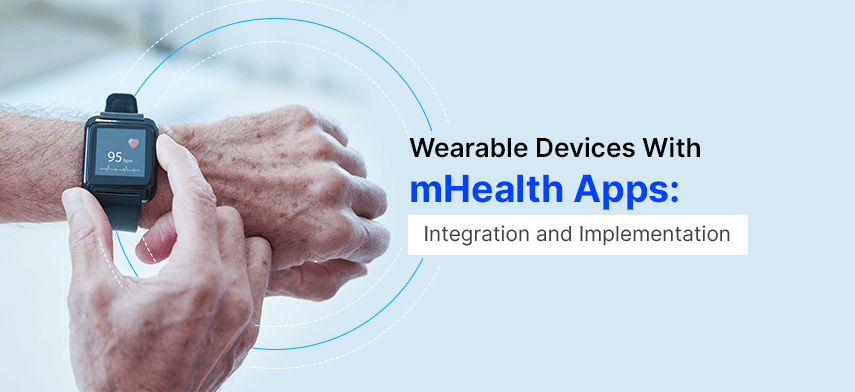Introduction to AI in Healthcare
Artificial Intelligence is not just a buzzword; it’s a transformative force reshaping the landscape of healthcare. From predictive analytics to robotic surgeries, AI is at the forefront of medical innovation. Imagine having a virtual assistant that can analyze your health data in seconds or algorithms that predict disease outbreaks before they happen. The potential seems limitless. As we dive deeper into this fascinating intersection of technology and medicine, it’s clear that Artificial Intelligence is revolutionizing healthcare in ways we never thought possible. Let’s explore what makes this evolution so impactful and how it’s improving lives across the globe.
Benefits of AI in Medicine
AI enhances diagnostic accuracy, enabling healthcare professionals to detect diseases earlier and more reliably. Algorithms analyze vast amounts of medical data, identifying patterns that might be missed by the human eye.
Efficiency is another significant advantage. Automation streamlines administrative tasks, allowing providers to focus on patient care rather than paperwork. This leads to shorter wait times for patients and improved overall service quality.
Personalized medicine has also gained traction thanks to AI’s capabilities. By analyzing individual patient data, treatments can be tailored specifically to each person’s needs. This customization increases the likelihood of successful outcomes.
Moreover, predictive analytics powered by AI helps in anticipating health trends within populations. This foresight enables proactive measures instead of reactive ones, which can save lives and reduce costs in the long run. With these benefits unfolding rapidly, it’s clear that artificial intelligence is reshaping how we approach healthcare today.

Applications of AI in Healthcare
Artificial Intelligence is transforming various aspects of healthcare, making processes more efficient and precise. One major application lies in diagnostics. AI algorithms analyze medical images to identify conditions like tumors or fractures faster than the human eye.
Predictive analytics is another powerful tool. By examining patient data, AI can forecast potential health risks, allowing for proactive interventions that improve outcomes.
Telemedicine benefits from AI as well. Virtual assistants help triage patients, directing them to appropriate care without unnecessary delays.
Moreover, drug discovery has seen a revolution with machine learning models predicting how different compounds interact within the body. This accelerates research timelines significantly.
Personalized medicine harnesses AI to tailor treatment plans based on individual genetic profiles and lifestyle factors. This approach maximizes effectiveness while minimizing side effects—an exciting development for both doctors and patients alike.
Examples of Successful Implementation
Numerous healthcare institutions have embraced artificial intelligence, yielding remarkable results. For instance, Google’s DeepMind partnered with Moorfields Eye Hospital to develop an AI system that can diagnose eye diseases as accurately as top specialists. This innovation has the potential to save countless patients from vision loss.
Another notable example is IBM Watson Health. It analyzes vast amounts of medical literature and patient data to aid oncologists in creating personalized treatment plans for cancer patients. The speed and accuracy of this technology empower doctors to make better-informed decisions.
In radiology, Aidoc uses AI algorithms to detect abnormalities in imaging scans swiftly. By providing real-time assistance, it enhances diagnostic precision and reduces the workload on radiologists.
These examples reflect how artificial intelligence is not just a concept but a transformative force actively reshaping healthcare practices today.

Challenges and Concerns
As healthcare embraces Artificial Intelligence, several challenges emerge. Data privacy is a primary concern. With sensitive patient information at stake, ensuring that AI systems comply with regulations like HIPAA becomes crucial.
Moreover, the accuracy of AI algorithms needs constant scrutiny. Misdiagnoses can arise from flawed data or biased training sets. These inaccuracies could lead to significant health risks for patients.
Integration into existing healthcare systems also poses difficulties. Many facilities struggle with outdated technology and staff resistance to new processes. Training personnel to work alongside AI tools demands time and resources.
Additionally, there’s a potential lack of transparency in how decisions are made by these intelligent systems. Patients may feel uneasy about trusting machines over human expertise.
Ethical dilemmas surface regarding accountability when mistakes occur—who takes responsibility? Addressing these concerns is essential for smooth integration into modern medicine while preserving trust within the healthcare community.
Ethical Considerations
As Artificial Intelligence becomes integral to healthcare, ethical considerations emerge as a crucial topic. The use of AI in medicine raises questions about patient privacy and data security. Protecting sensitive health information is paramount.
Bias in algorithms presents another challenge. If not carefully managed, AI systems may inadvertently perpetuate existing disparities in care. This could affect treatment outcomes for marginalized groups.
Transparency is vital when utilizing AI tools. Patients should understand how these technologies influence their diagnoses and treatments. Informed consent becomes increasingly complex with machine learning models making decisions based on vast datasets.
Moreover, accountability is a pressing concern. Who bears responsibility if an AI system makes a medical error? Establishing clear guidelines will be essential to navigate this uncharted territory while ensuring patient safety remains at the forefront of innovation efforts.
The Future of AI in Healthcare
The future of AI in healthcare promises remarkable advancements. With ongoing research, we can expect even more sophisticated algorithms that enhance diagnostics and treatment plans.
As technology evolves, wearable devices will generate real-time data. This continuous stream of information allows for personalized medicine tailored to individual needs. Imagine a world where chronic conditions are managed proactively rather than reactively.
AI’s potential extends beyond patient care. Administrative tasks like scheduling, billing, and record-keeping could become automated. This shift would free up valuable time for healthcare professionals to focus on what truly matters — their patients.
Moreover, collaboration between AI systems and human practitioners may lead to breakthroughs in understanding complex diseases. The integration of artificial intelligence into clinical settings is just beginning to unfold; it’s an exciting prospect that holds the key to transforming modern medicine forever.
Conclusion
The integration of artificial intelligence in healthcare presents a transformative shift that is reshaping the landscape of medicine. With its ability to analyze vast datasets, AI enhances diagnostic accuracy and personalizes treatment plans, improving patient outcomes significantly. From predictive analytics to robotic surgeries, the applications are diverse and growing rapidly.
However, as with any technological advancement, challenges arise. Data privacy concerns and the need for regulatory frameworks demand careful consideration. Ethical dilemmas surrounding decision-making processes also require ongoing dialogue among stakeholders.
As we look ahead, it’s evident that AI will continue to play a crucial role in healthcare innovation. Its potential to streamline operations while providing better care is boundless. Embracing this technology could lead not only to improved efficiencies but also to breakthroughs that redefine our understanding of health and wellness.
With every development in artificial intelligence comes an opportunity—a chance for medical professionals and patients alike to benefit from cutting-edge advancements designed to enhance lives across the globe.








